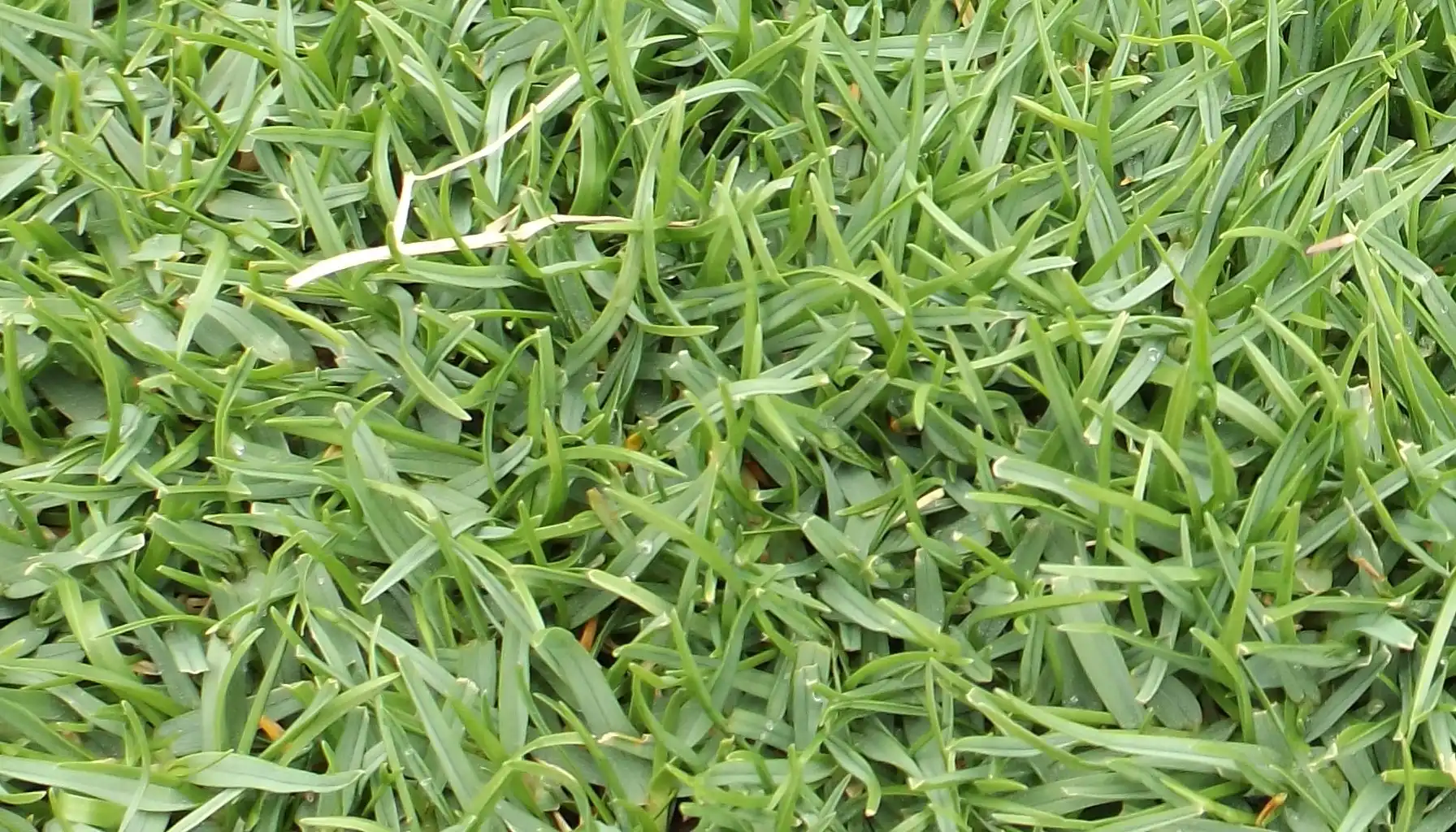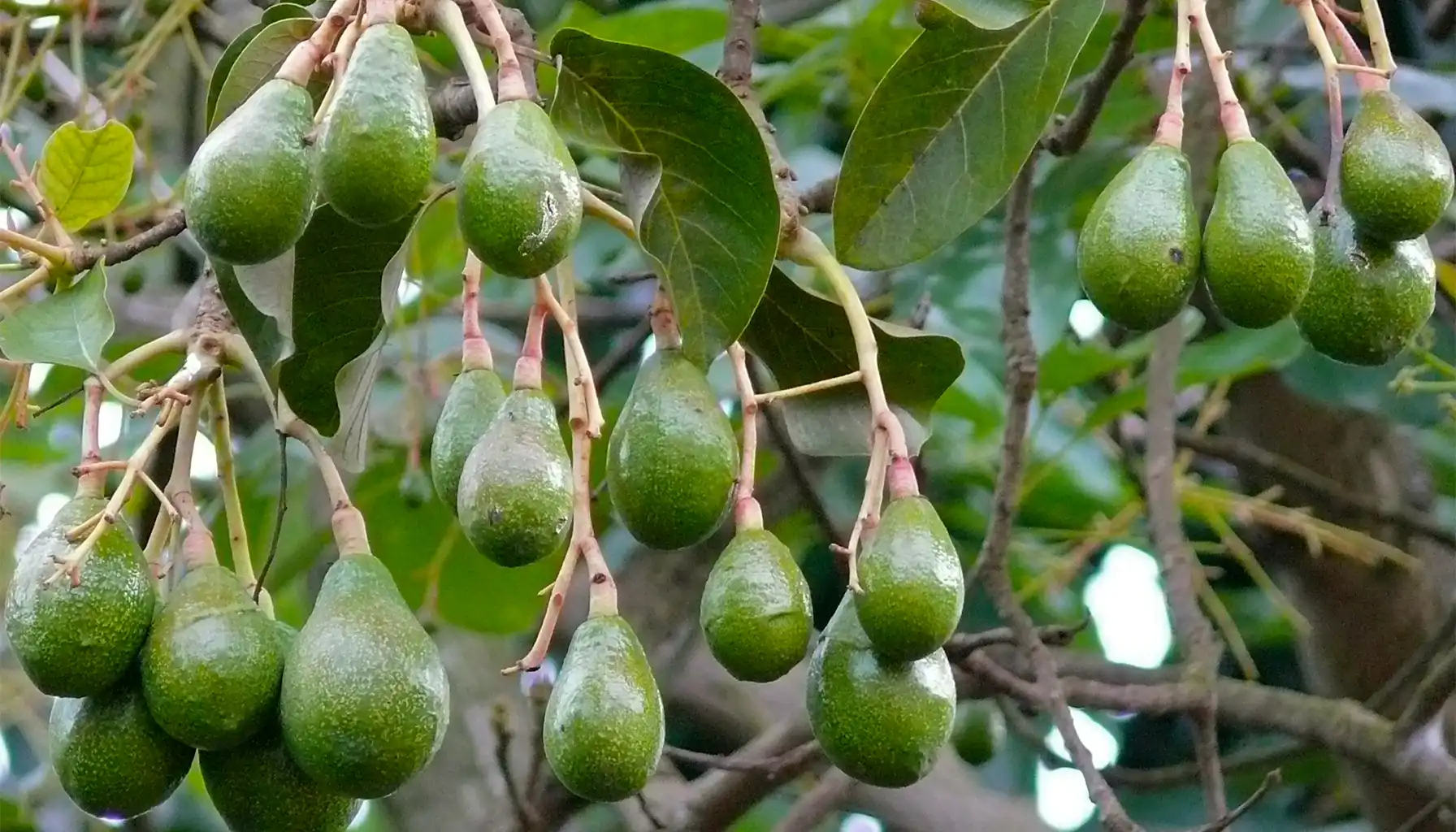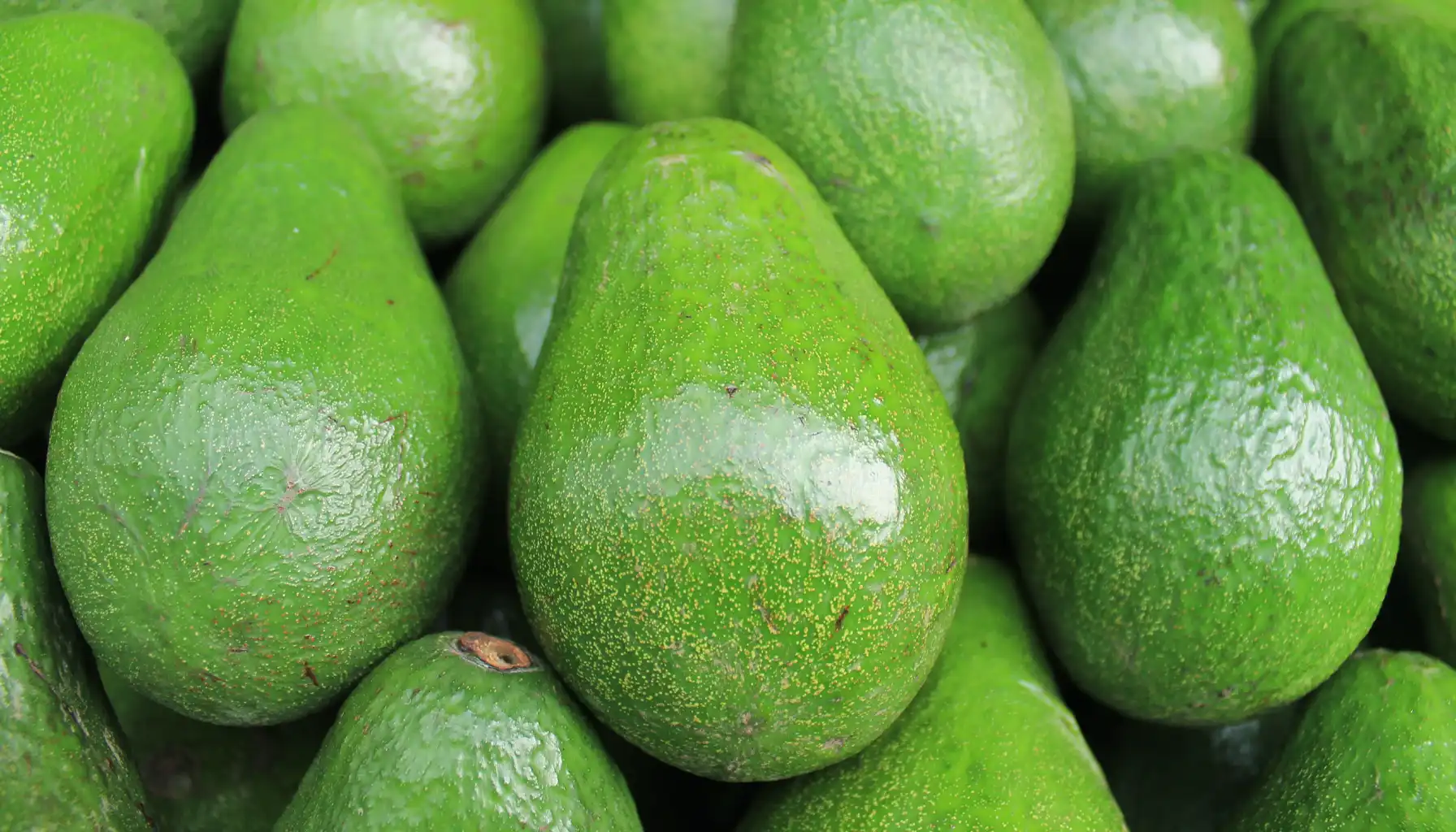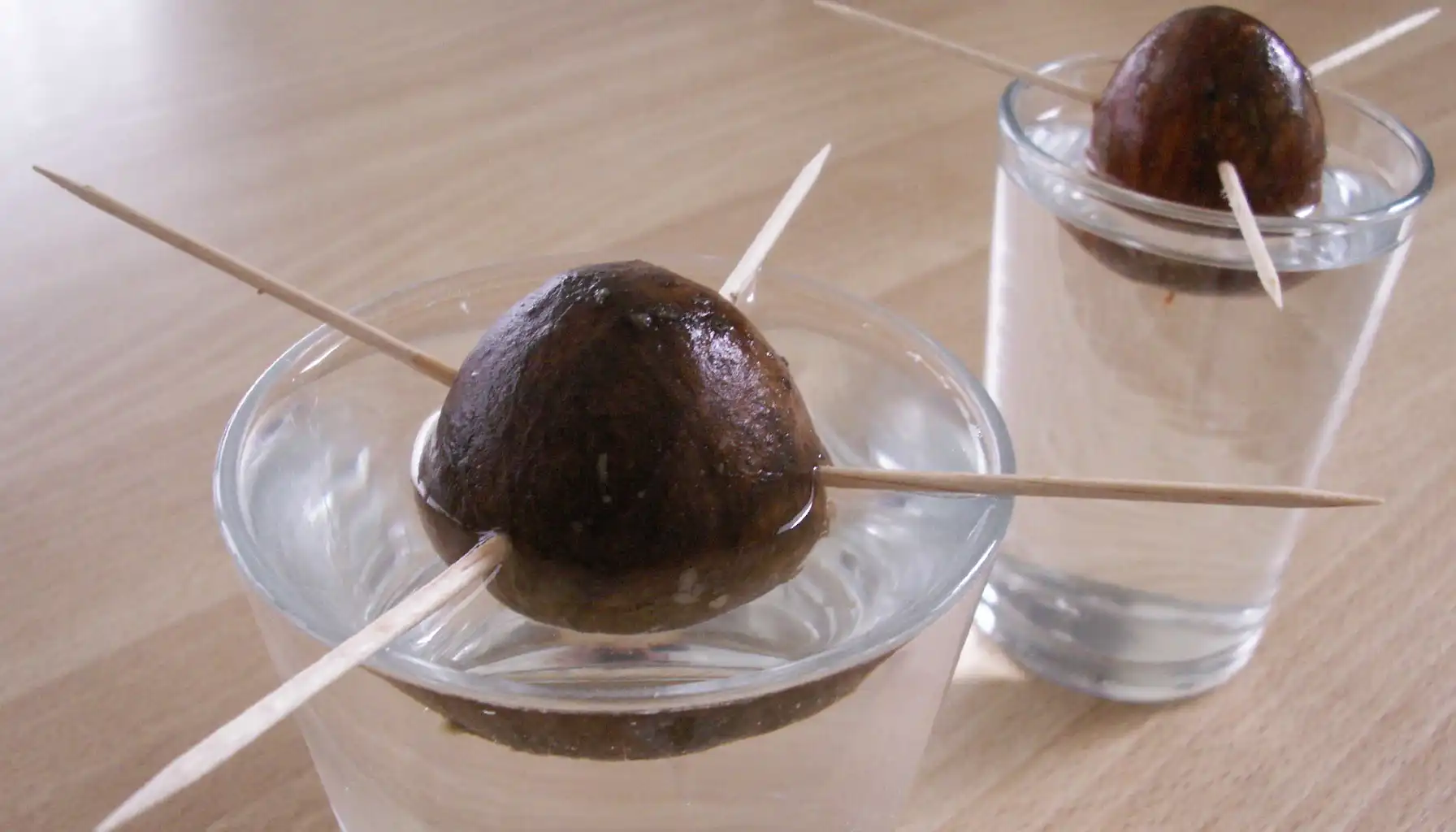The Avocado is fruit with a buttery and creamy texture. The plant has nutrient-dense effects – vitamins, fiber, minerals and healthy fats. It has many glossy leaves, steady growth, and fruit potential that attract both professionals and beginners.
With proper technique and patience, anyone can grow a strong Avocado tree from a single seed. This guide explains every stage of the process – from preparation and planting to care and indoor maintenance. If you are interested in other growing guides – try the free plant identifier app.
Plant ID
The botanical name of Avocado Tree is Persea americana, which belongs to the laurel family. Is widely distributed throughout the tropical and subtropical parts of Central America. The full grown tree reaches up to 65 feet in its natural habitat.
Type | Evergreen tree |
Growth Habit | Upright with wide crown |
Leaf Color | Glossy dark green |
Outdoor Height | 49-66 feet |
Indoor Height | 4-6 feet |
Water Needs | Average |
Exposure | Full sun |
Season | Spring, Summer, Fall, Winter |
Soil Type | Loam, Sand |
Soil pH | Acid, Neutral |
Soil Drainage | Well-Drained, Moist but Well-Drained |
Maintenance | Low |
Pruning | Every 3-6 months |
How to plant Avocado seed and succeed with simple household materials? The seed, or pit, contains the embryo that develops into a new tree. By following correct planting steps, gardeners can produce a healthy plant that lives for years.
How to Start an Avocado Plant from Seed
Each Avocado contains a large pit that can germinate under the right conditions. Gardeners can use two reliable methods: water rooting and soil planting. The first method allows easy observation of the root and stem growth, while the second promotes faster adaptation to soil life.
Many first-time growers search for how to plant an Avocado seed in water because this approach uses common items.
Method 1: Growing in Water
Remove the seed from a ripe avocado without cutting the brown outer layer.
Wash it gently to remove fruit residue.
Insert three or four toothpicks into the sides of the pit.
Suspend the lower half in a glass of clean water.
Place the glass near sunlight but avoid direct heat.
Replace the water every few days to prevent mold.
Observe roots forming from the base and a stem emerging from the top.
Remember: The lower half must remain in water at all times. The upper half must stay dry. Within two to six weeks, the pit cracks open and roots grow downward.
How to plant an Avocado seed in soil? This stage includes five steps.
Method 2: Growing in Soil
Choose a medium-sized pot with drainage holes.
Fill it with loose, fertile soil mixed with sand or perlite.
Position the seed with its pointed end upward and cover it halfway.
Water the soil until it feels moist but not wet, may use neem oil.
Keep the pot in a warm and bright area.
Remember: Roots and shoots appear after several weeks. This method encourages strong initial growth and early adaptation to soil life.
Transplanting & Early Growth
When roots fill the container, move the seedling to a larger pot. Handle it gently to avoid root damage. A common question is whether can you plant an Avocado seed directly outdoors – you can, but only in frost-free climates. In cold regions, keep the plant indoors or in a greenhouse.
Growth Tips
The Avocado seed begins to sprout when gardeners keep it moist and warm. This steady care allows the root and shoot to appear and form the base of the plant. When the first leaves open, the plant requires bright light.
Strong illumination strengthens the stem and supports balanced growth. At a height of 8 to 10 inches, the grower pinches the top leaves. This simple action promotes the formation of strong branches and a fuller crown.
When the plant reaches 12 to 18 inches, it needs a larger pot. Transplanting at this stage expands root space and ensures stable development for the young tree.
When to Plant Avocado Seed
The best time to plant – spring, when daylight increases and temperatures stay above 65°F. Patience brings success; avocados grow slowly but respond positively to stable care. The table shows step-by-step recommendations on how to plant an Avocado pit. The table prevents all questions in the future about what is going wrong with my plant.
Time Period | Plant Development | Roots | Recommendation |
Week 1-2 | Seed rests and absorbs moisture | Seed coat intact, root not yet visible | Keep warm (70–80°F) and stable moisture |
Week 3-6 | Seed splits, first root and sprout appear | Single root grows downward | Change water every few days or check soil moisture |
Week 7-10 | Stem elongates, first leaves open | Several roots branch out | Move to a brighter spot, support stem |
Month 3-4 | Young seedling strengthens | Roots fill glass or small pot | Transplant to soil or larger container |
Month 5-6 | Plant forms thick stem, more leaves | Expanding root system | Pinch top leaves to encourage branching |
Month 7-9 | Lush foliage and secondary branches form | Roots anchor firmly | Rotate pot for even growth |
Month 10-12 | Sturdy stem and dense canopy | Strong, fibrous roots | Repot into 12-inch container |
1-2 Years | A 1 year old avocado plant often reaches two feet in height; Young tree matures | Root ball dense and healthy | Prune lower branches |
2-3 Years | Woody trunk forms, foliage expands | Stable root structure | Apply organic mulch, adjust watering |
3-4 Years | Full young tree stage | Root spread wide and deep | Provide support stake if outdoors |
4-6 Years | Semi-mature outdoor tree | Thick root mass, stable trunk | Prune annually to control size |
6-10 Years | Productive maturity stage | Extensive root network | Harvest ripe fruit when soft to touch |
Avocado Plant Care
Watering: Knowing how often to water Avocado plant prevents most problems. The soil should stay slightly moist. Water when the top inch feels dry. Never leave the pot in standing water. Overwatering causes root rot, while long dryness stops growth.
Light: Provide bright indirect light indoors. In summer, place the plant outdoors for a few hours each day. Bring it inside before night temperatures fall below 50°F. The Avocado plant indoors needs a south-facing window for healthy growth.
Health Portrait: You can recognize it by its shiny leaves and upright stem. The leaves appear oval, smooth, and rich green. A healthy seedling grows steadily without spots or curling.
If the Avocado plant leaves turn yellow, reduce watering and improve drainage. Brown tips indicate low humidity or excess fertilizer. The plant prefers moderate, steady care, not constant change. Try to recognize and eliminate tree suckers as fast as you can.
Fertilizing: Feed the plant every two months with a balanced liquid fertilizer. Avoid high nitrogen formulas during early stages. Light feeding supports strong root and leaf growth. Trim weak or leggy stems to shape the plant. This helps form a full crown and encourages even light exposure.
Maintenance: Gardeners research the Avocado plant care indoor techniques to maintain compact plants. Use a humidifier or mist the air in dry environments. Rotate the pot weekly for even leaf growth.
Indoor Growing: Home gardeners who grow Avocado plant from seed indoors must focus on light, moisture, and pruning. The tree grows well near bright windows and remains manageable with regular trimming. Containers with proper size support continuous development.
Outdoor Growing: In tropical and subtropical regions, gardeners ask when to plant an Avocado seed outdoors. They choose spring or early summer, when soil stays warm. Full sunlight and deep watering create ideal conditions for outdoor adaptation.
Long-Term Care: An indoor avocado does not always produce fruit, but it enriches living spaces with fresh color and natural air filtering. Anyone who learns how to grow an Avocado seed plant can maintain it for many years with consistent attention.
FAQs
How do you plant an Avocado seed correctly?
Temperature, moisture, and light strongly influence the success of avocado seed germination. The ideal temperature stays between 70 and 80°F (21–27°C). The seed must remain slightly warm and never dry. Constant moisture allows the embryo inside to activate. Place the seed in bright indirect light, not direct sun, to prevent heat stress.
How to plant an Avocado tree after the seedling matures?
When the avocado plant grows 12–18 inches tall, it becomes ready for transplanting into the garden. Choose a spot with full sunlight and loose, well-drained soil. The roots must spread freely, so dig a hole twice as wide as the root ball. Avoid waterlogging, which may damage roots.
How to plant a Avocado seed in different containers?
Almost any container supports an avocado seed as long as it allows drainage. Containers with holes at the bottom prevent water accumulation and root rot. Wide pots help roots expand horizontally, which strengthens the base of the plant. Clay pots dry faster and work well in humid climates, while plastic pots retain moisture and fit drier conditions.
Is it important to buy and share plants?
Nurseries offer young avocado trees for quick start gardens. A search for an Avocado plant for sale provides many options. Homegrown seedlings turn into learning experiences. Sharing rooted plants with friends may promote sustainable gardening. Every seed holds unique traits, so each tree differs slightly in leaf form and growth rate.
What effect on Avocado plant adaptation?
Gardeners who understand how to plant Avocado pit and care for the young tree often succeed in permanent planting. Regular pruning and balanced watering ensure steady progress toward maturity.
Related AI Plant Finder Posts






